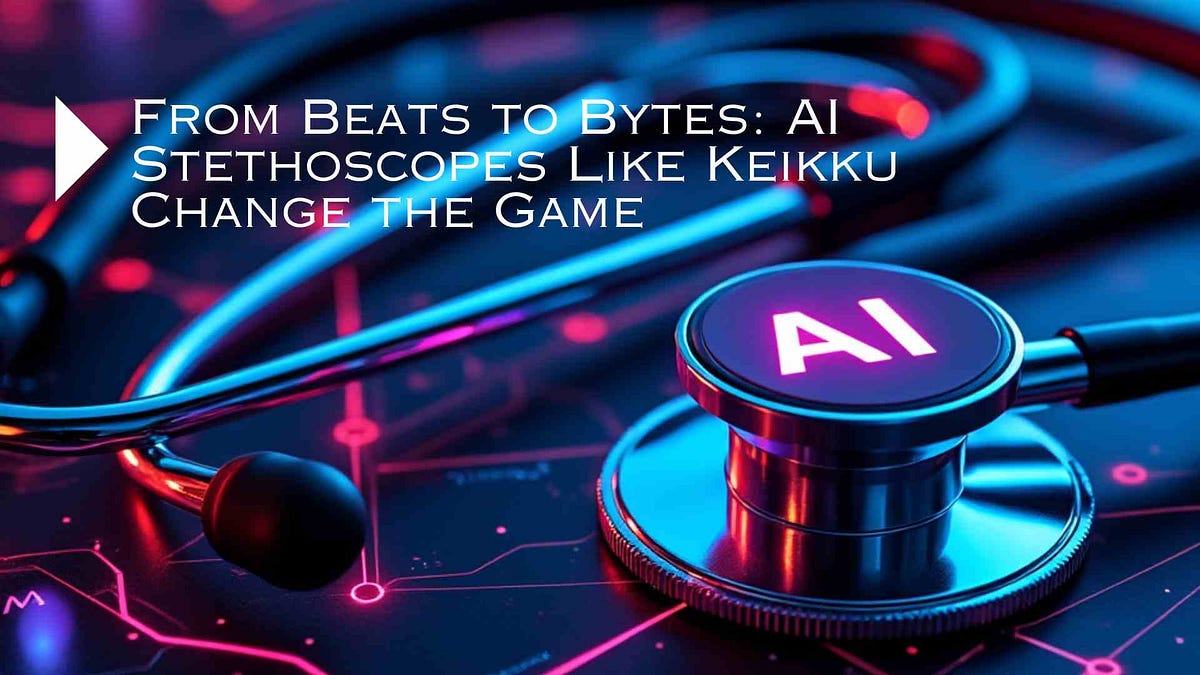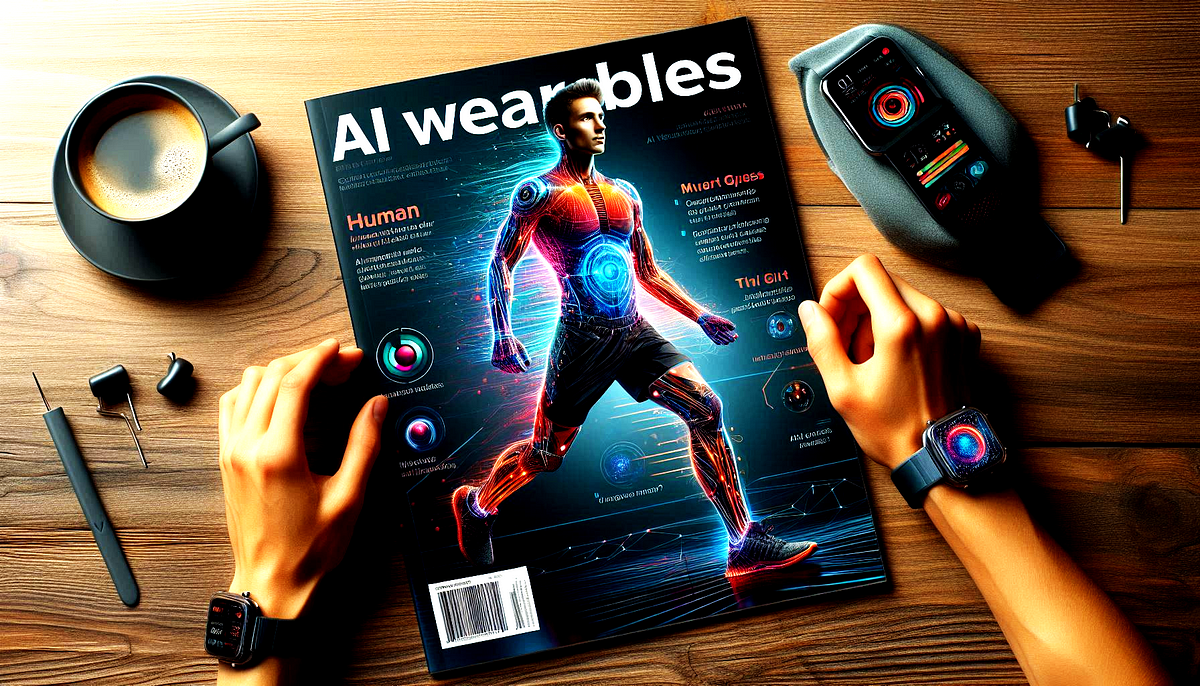- AIHealthTech Insider
- Posts
- 🚀NVIDIA & Deloitte's AI Agents: Revolutionizing Pre-Surgery Care : Issue # 19
🚀NVIDIA & Deloitte's AI Agents: Revolutionizing Pre-Surgery Care : Issue # 19
Plus: 🧪Google’s CT Breakthrough: Reimagining 3D Medical Imaging
AIHealthTech Insider: Issue # 19
In this edition of AIHealthTech Insider, we explore groundbreaking advancements in AI that are revolutionizing healthcare. From NVIDIA and Deloitte’s AI-powered virtual teammates easing pre-surgery anxiety to Google Research’s CT Foundation enhancing 3D medical imaging, these innovations are reshaping patient care.

Image Source: Grok
We also highlight AI breakthroughs presented at HLTH 2024 and UCLA's SLIViT model powered by NVIDIA, which accelerates 3D medical image analysis and disease detection.
AI Breakthroughs 🔬
NVIDIA and Deloitte Bring AI Agents to Hospital Pre-Surgery Support
Ahead of surgery, many patients experience anxiety and have numerous questions about what to expect. To alleviate pre-surgery jitters, NVIDIA and Deloitte are developing AI agents using NVIDIA AI to introduce the next generation of virtual teammates for patient care. These AI-powered agents engage in natural, human-like conversations, answering a wide range of questions and offering helpful guidance before preadmission appointments.
By providing patients with the support they need even before they arrive at the hospital, these virtual teammates aim to improve the overall patient experience and reduce anxiety.
This innovative use of AI in healthcare demonstrates how technology can enhance patient care, streamline communication, and provide peace of mind ahead of critical medical procedures.
AI Event 📆
AI Innovations at HLTH 2024: Key Highlights from Day 1 and 2
October 20-23, 2024, Las Vegas
The HLTH 2024 conference in Las Vegas showcased the latest AI advancements in healthcare. Over the first two days, leading industry players highlighted how AI is transforming patient care, healthcare management, and clinical operations.

Image Source: https://x.com/HLTHEVENT
Day 1 Highlights:
Kaiser Permanente CEO, Greg Adams, discussed the Risant Health strategy, which aims to build a national value-based care network using AI to improve patient outcomes and reduce costs.
Talkiatry CEO, Robert Krayn, announced the extension of remote prescribing, allowing clinicians to prescribe controlled medications through digital platforms.
AI was also emphasized for home healthcare, particularly for reaching seniors without the need for hospital visits.
Day 2 Highlights:
Google Cloud introduced Vertex AI Search for Healthcare, a tool to help clinicians quickly find medical data in electronic health records. Google is partnering with HCA Healthcare and Mayo Clinic to develop customized AI solutions.
Amazon One Medical partnered with Cleveland Clinic to open a primary care office by 2025, aiming to enhance services with AI.
As AI continues to reshape healthcare, HLTH 2024 demonstrates the industry's drive for innovation and improved patient care with tech giants like Google and Amazon leading the way.
AI Innovations 🔬
Google Research Introduces CT Foundation for Efficient 3D Medical Imaging
Google Research has announced CT Foundation, a new tool designed specifically for 3D CT volumes, extending previous work in chest radiographs, dermatology, and digital pathology. This release marks a step forward in processing and analyzing 3D medical images, streamlining AI model development for CT scans.
AI in medical imaging has mainly focused on 2D imaging, but CT scans pose challenges due to their complexity. CT Foundation streamlines CT scan processing, allowing faster AI model training with fewer resources. It simplifies handling 2D DICOM images, reassembling them into 3D volumes, and produces embedding vectors for classification, reducing manual data preparation and computational needs.
Key Features:
3D Image Embedding: Generates a vector summarizing critical information from CT volumes, such as organs, tissues, and abnormalities.
Efficient Training: Allows developers to build accurate models with less data and computational resources using pre-trained embeddings.
Automated DICOM Processing: Handles the conversion of raw DICOM images into usable 3D volumes automatically.
VideoCoCa Architecture: Leverages VideoCoCa technology, extending its transfer learning capabilities to 3D medical imaging.
Broad Medical Application: Trained on over 500,000 CT volumes covering various body regions, supporting diverse diagnostic tasks, including lung cancer detection and abdominal imaging.
CT Foundation processes DICOM files into 3D volumes and generates embeddings summarizing key scan features. These embeddings can be used in classifiers, enabling high-performance models with minimal data and computation. It simplifies AI model development for 3D medical imaging, making it more accessible and potentially accelerating progress in medical diagnostics and AI-driven healthcare, especially in resource-limited areas.
AI in Healthcare News 🩺
NVIDIA-Powered SLIViT AI Model Redefines Fast, Accurate 3D Medical Imaging
Researchers at UCLA, in collaboration with NVIDIA, have developed SLIViT, a cutting-edge AI model that quickly and accurately analyzes 3D medical images, identifying disease biomarkers with expert-level precision. Leveraging NVIDIA’s advanced GPUs, SLIViT handles multiple imaging modalities, providing a faster, more cost-effective solution for medical image analysis.
SLIViT (SLice Integration by Vision Transformer) is an advanced AI model developed by UCLA designed to analyze 3D medical images more efficiently and accurately than human experts.
Key Features:
Analyzes 3D medical images such as MRIs, CT scans, and retinal scans.
Built using NVIDIA’s T4 GPUs and V100 Tensor Core GPUs, enhancing its computational capabilities.
Utilizes a novel pre-training and fine-tuning method on accessible public datasets for superior accuracy.
Excels in processing both 2D and 3D scans, employing transfer learning to improve performance.
Easily deployable, offering high accuracy even in regions with limited access to medical imagery experts.
The SLIViT model, based on a Vision Transformer (ViT) architecture and powered by NVIDIA’s platforms, offers expert-level precision in medical imaging. Pre-trained on large 2D datasets and fine-tuned on smaller 3D ones, it uses CUDA technology for fast computations, enabling large-scale, accurate analysis. SLIViT can efficiently handle various imaging tasks, potentially reducing diagnostic delays, especially in areas with few medical professionals. Its adaptability and NVIDIA’s AI infrastructure promise scalable, affordable solutions to enhance patient care.
SPONSORED CONTENT
Writer RAG tool: build production-ready RAG apps in minutes
Writer RAG Tool: build production-ready RAG apps in minutes with simple API calls.
Knowledge Graph integration for intelligent data retrieval and AI-powered interactions.
Streamlined full-stack platform eliminates complex setups for scalable, accurate AI workflows.
5 min read ⏳
AI Stethoscopes & Wearables: Shaping the Future of Healthcare Diagnostics
Innovative technologies are reshaping patient care and diagnostics at a rapid pace.
From cutting-edge AI-powered stethoscopes to next-gen wearable health monitoring devices, artificial intelligence is revolutionizing how we monitor and manage our health.
Explore these two insightful blogs to dive into the latest advancements driving the future of healthcare.
Your AI Experience

Which AI Healthcare Innovation Excites You the Most? |
Stay Ahead: AI Healthcare News!
This is just a taste of AI's healthcare revolution. Subscribe for exclusive updates & insights on AI shaping medicine's future!






